Home » Special Issues
Special Issues
To enhance the dissemination of key research developments related to NMOSD, MOGAD, and other rare neuroimmune conditions, TSF sponsors special issues — collectives of research papers dedicated to these research areas — in highly-respected medical journals. These special issues help bring these rare diseases into the spotlight and encourage researchers to build on the existing body of work.
MOGAD, Current Knowledge and Future Trends – Frontiers in Neurology
In 2023, TSF provided $35,000 in support to Frontiers in Neurology to assist authors contributing to this collection by fully or partially covering the article processing charge. To access the entire issue, click here.
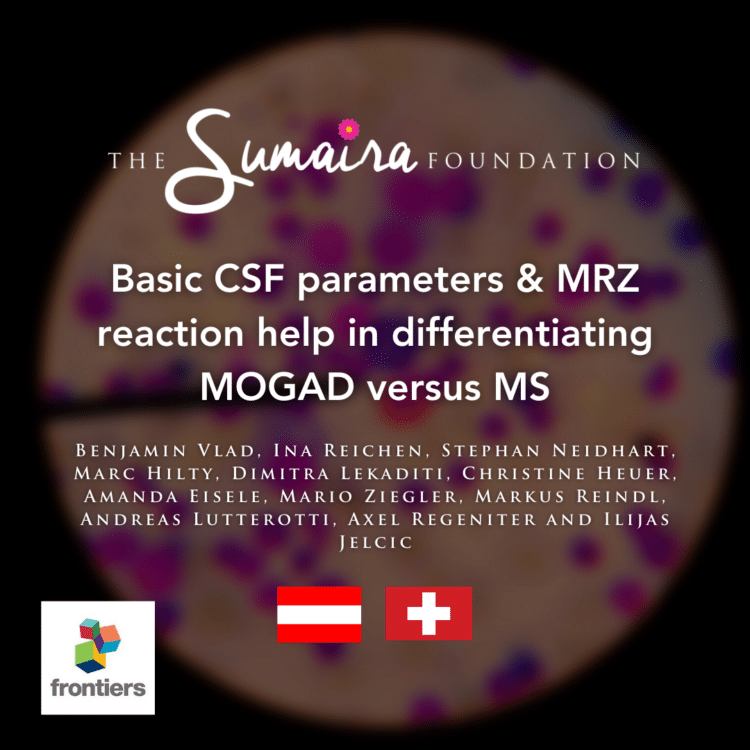
Basic CSF parameters and MRZ reaction help in differentiating MOG antibody-associated autoimmune disease versus multiple sclerosis
- Principal Investigators | Benjamin Vlad, Ina Reichen, Stephan Neidhart, Marc Hilty, Dimitra Lekaditi, Christine Heuer, Amanda Eisele, Mario Ziegler, Markus Reindl, Andreas Lutterotti, Axel Regeniter and Ilijas Jelcic
- Institution | University Hospital Zurich (Switzerland), University of Zurich (Switzerland), Medizinische Universität Innsbruck (Austria), Neurozentrum Bellevue (Switzerland), and medica Medizinische Laboratorien Dr. F. Kaeppeli (Switzerland)
- Publication | Basic CSF parameters and MRZ reaction help in differentiating MOG antibody-associated autoimmune disease versus multiple sclerosis
Show More
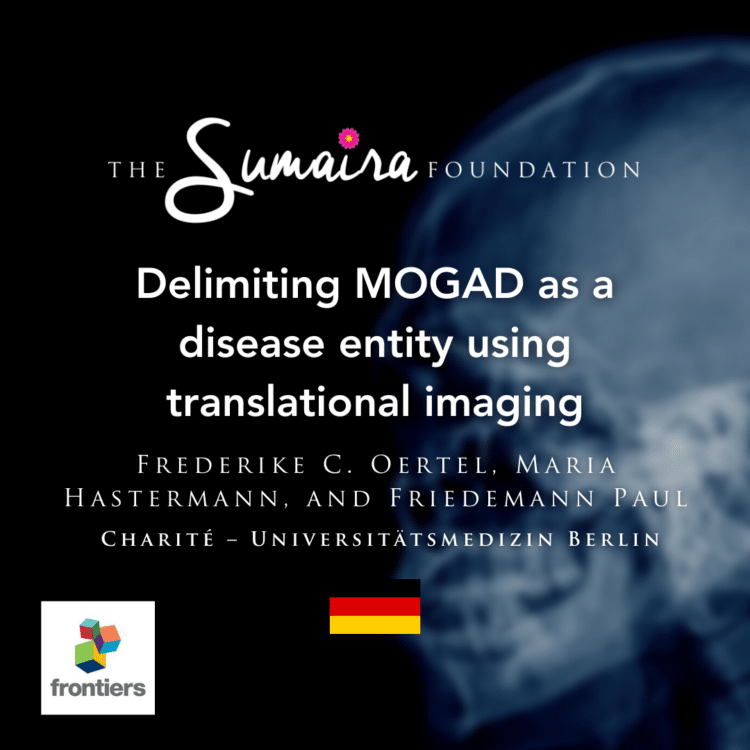
Delimiting MOGAD as a disease entity using translational imaging
- Principal Investigators | Frederike C. Oertel, Maria Hastermann, and Friedemann Paul
- Institution | Charité – Universitätsmedizin Berlin (Germany)
- Aim | This article reviews suitable animal models for translational MOGAD research and the current state and prospect of translational imaging in MOGAD.
- Publication | Delimiting MOGAD as a disease entity using translational imaging
Show More
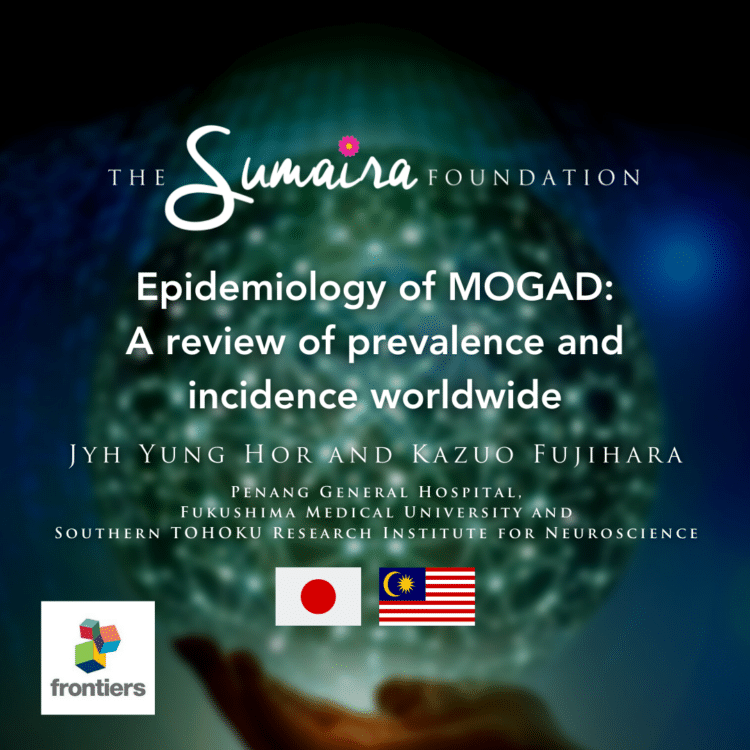
Epidemiology of MOGAD: A review of prevalence and incidence worldwide
Show More
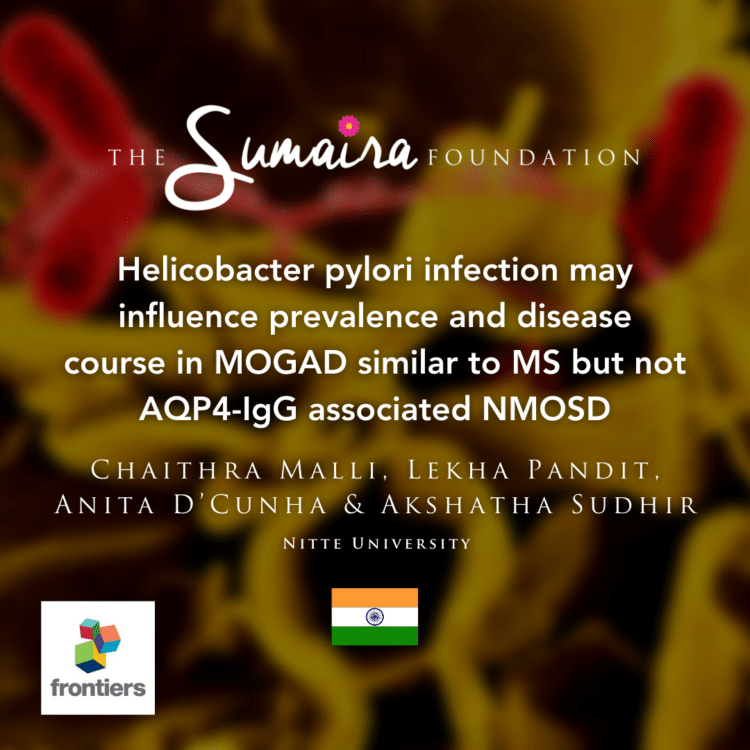
Helicobacter pylori infection may influence prevalence and disease course in MOGAD similar to MS but not AQP4-IgG associated NMOSD
Show More
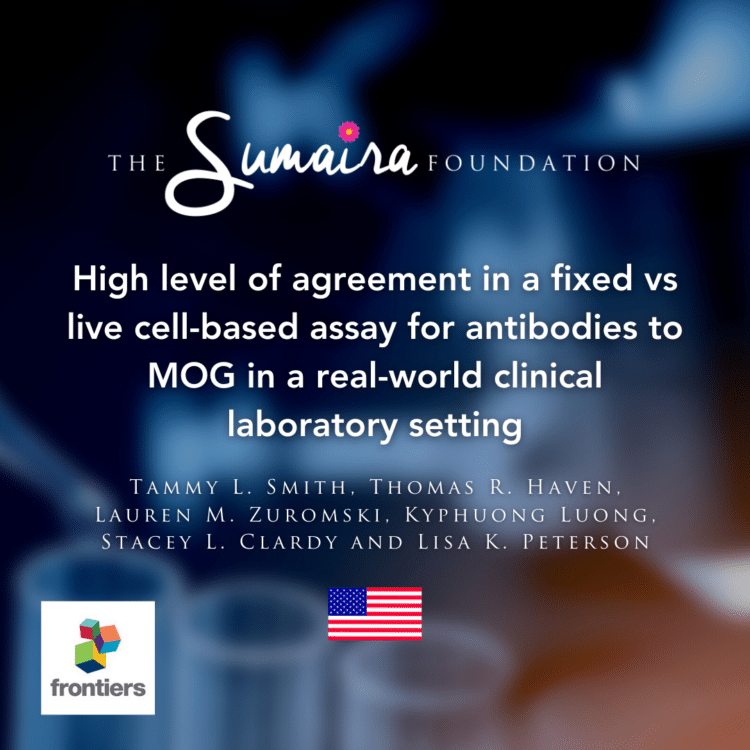
High level of agreement in a fixed vs live cell-based assay for antibodies to MOG in a real-world clinical laboratory setting
Show More
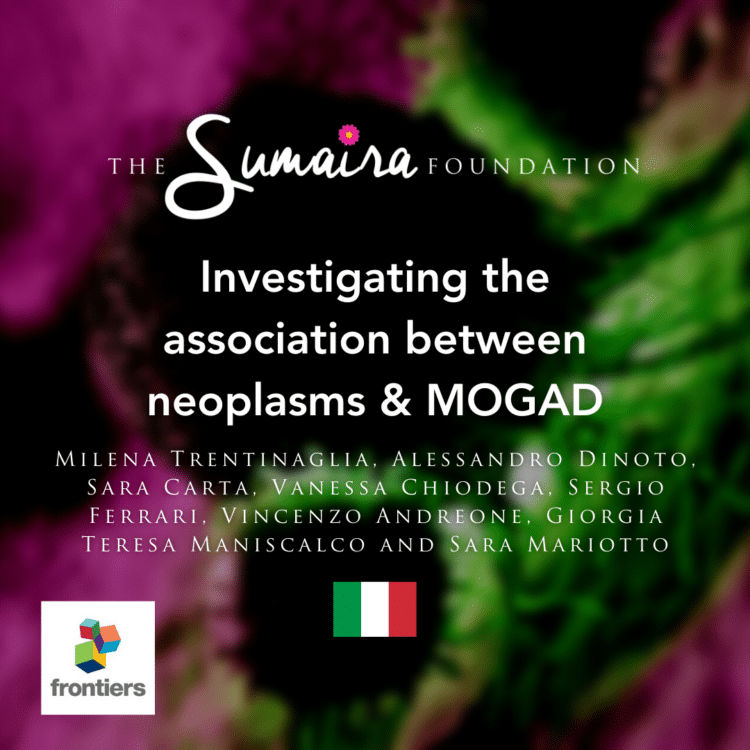
Investigating the association between neoplasms & MOGAD
- Principal Investigators | Milena Trentinaglia, Alessandro Dinoto, Sara Carta, Vanessa Chiodega, Sergio Ferrari, Vincenzo Andreone, Giorgia Teresa Maniscalco and Sara Mariotto
- Institutions | University of Verona, Neurological Clinic and Stroke Unit – Naples and Multiple Sclerosis Center – Naples (Italy)
- Aim | To investigate the occurrence of tumors in a cohort of patients with MOGAD and to describe their clinical features, in addition to previously reported cases.
- Publication | Investigating the association between neoplasms and MOG antibody-associated disease
Show More
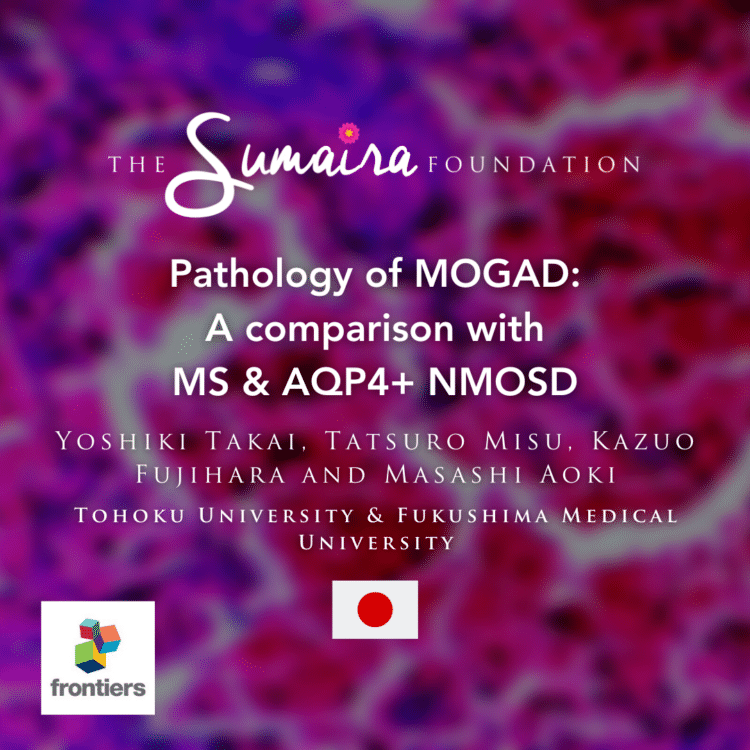
Pathology of MOGAD: A comparison with MS and AQP4+ NMOSD
Show More
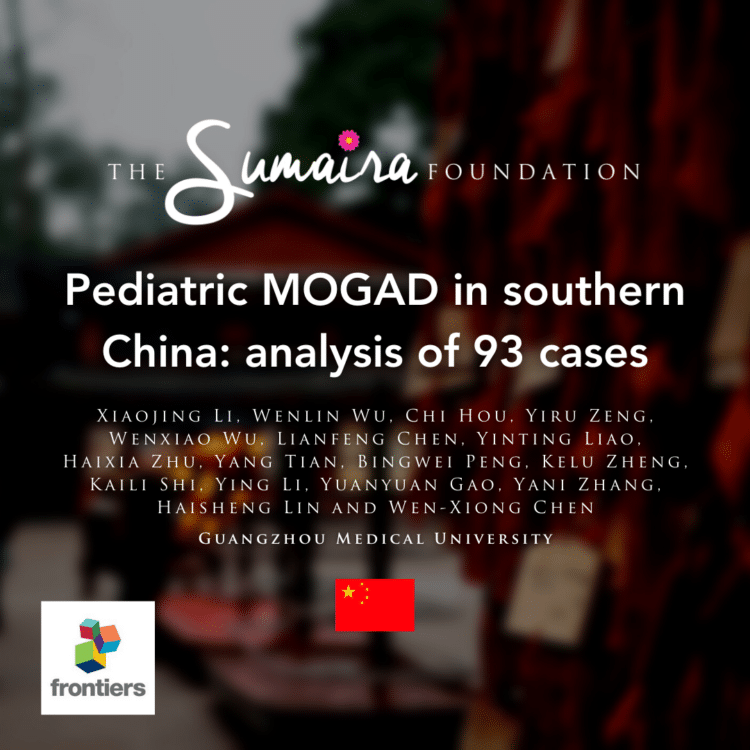
Pediatric MOGAD in southern China: analysis of 93 cases
- Principal Investigators | Xiaojing Li, Wenlin Wu, Chi Hou, Yiru Zeng, Wenxiao Wu, Lianfeng Chen, Yinting Liao, Haixia Zhu, Yang Tian, Bingwei Peng, Kelu Zheng, Kaili Shi, Ying Li, Yuanyuan Gao, Yani Zhang, Haisheng Lin and Wen-Xiong Chen
- Institution | Guangzhou Medical University, Guangzhou (China)
- Aim | To study the clinical features of children diagnosed with myelin oligodendrocyte glycoprotein antibody-associated disease (MOGAD) in southern China.
- Publication | Pediatric myelin oligodendrocyte glycoprotein antibody-associated disease in southern China: analysis of 93 cases
Show More
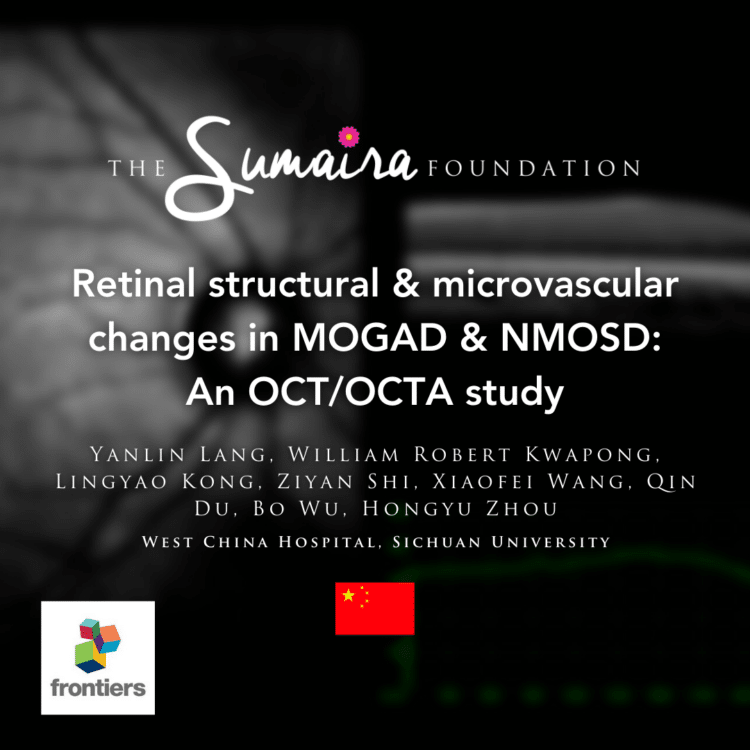
Retinal structural and microvascular changes in MOGAD & NMOSD: An OCT/OCTA study
Show More
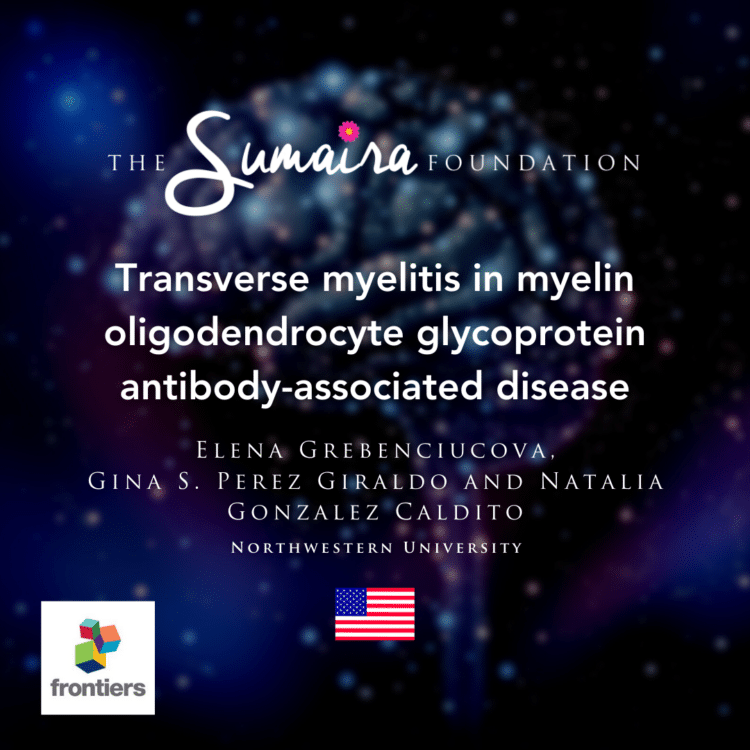
Transverse myelitis in MOGAD
- Principal Investigators | Elena Grebenciucova, Gina S. Perez Giraldo and Natalia Gonzalez Caldito
- Institution | Northwestern University (USA)
- Aim | To empower physicians to recognize diagnostic challenges of transverse myelitis associated with MOGAD, such as low predictive value of low titers of MOG antibodies for the diagnosis of MOGAD, importance of both clinical and radiological characteristics, exclusion of other causes, discussing risk of recurrence, and administering acute treatment as well as communicating the rationale of whether chronic treatments are necessary to reduce the risk of relapse after the first relapse.
- Publication | Transverse myelitis in myelin oligodendrocyte glycoprotein antibody-associated disease
Show More
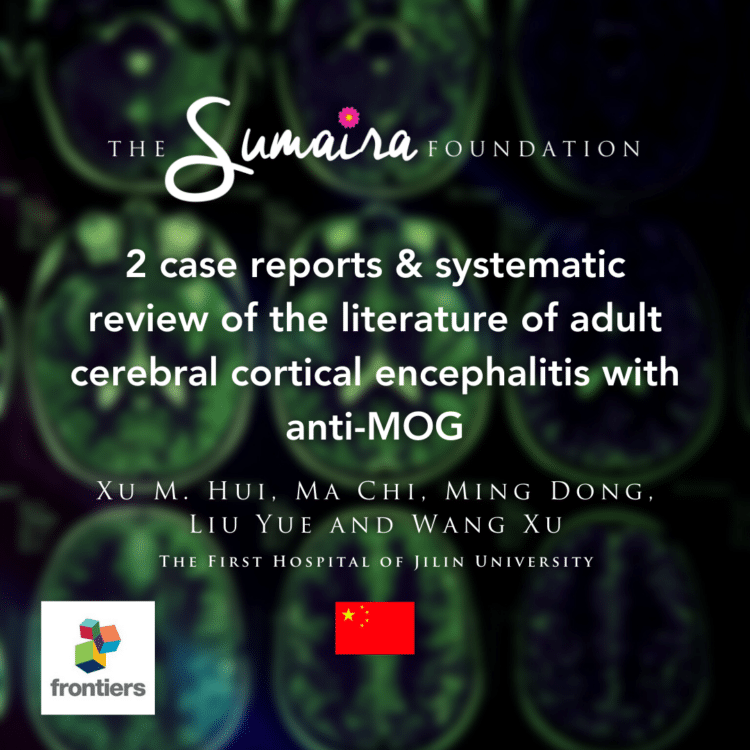
Two case reports and systematic review of the literature of adult cerebral cortical encephalitis with anti-myelin oligodendrocyte glycoprotein antibody
Show More




